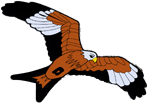Our Curriculum
The Early Years are an extremely important part of your child's journey into education. Through purposeful play, adult-led and child-led activities, your child will learn key skills that will encourage independence, curiosity and support them to develop a love of learning.

Our curriculum has been created to: recognise children's prior learning, provide first-hand learning experience, ensure high-quality interactions with adults, provide a language-rich environment and inspire children to become HAPPY, VALUED, CURIOUS, AMBITIOUS, TOLERANT, RESPECTFUL, CONFIDENT, CONSIDERATE, INDEPENDENT, RESILIENT, ENTHUSIASTIC, SUCCESSFUL learners.


The Early Years Foundation Stage (EYFS) statutory framework supports and guides the development of our curriculum and environment at Stokenchurch.
EYFS Birth to Five Matters (Non-Statutory Guidance)
Curriculum Overview and Progression of Skills for 2024 - 2025 will be added soon.
